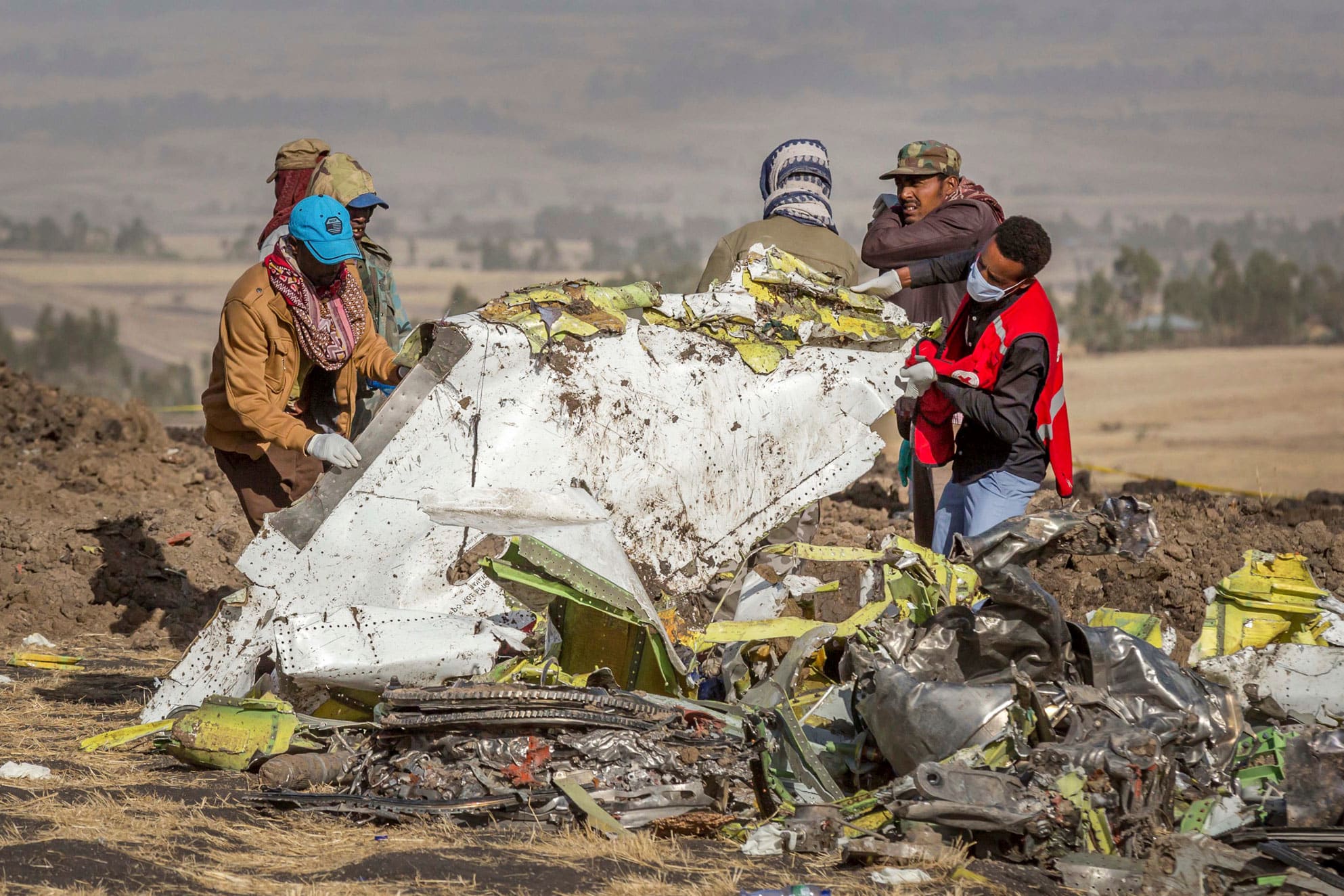US aviation officials think a bird strike was factor in 737 Max crash - 2 minutes read

Rescuers work at the scene of an Ethiopian Airlines flight crash near Bishoftu, or Debre Zeit, south of Addis Ababa, Ethiopia, Monday, March 11, 2019.
Mulugeta Ayene | Reuters
U.S. aviation officials believe a bird strike may have led to the deadly crash of an Ethiopian Airlines Boeing 737 Max in March, according to a person familiar with the matter.
Boeing shares were just under 1% in morning trading.
The fast-selling Boeing 737 Max airplanes have been grounded since shortly after that accident, which came less than five months after a similar crash in Indonesia. Together, the two crashes killed 346 people.
Crash investigators have indicated that bad sensor data triggered an anti-stall system aboard the Ethiopian Airlines Boeing 737 Max that went down shortly after takeoff, a similar scenario to a crash of the same type of plane in Indonesia in October. The system automatically pushes the nose of the plane down if it perceives the aircraft is in a stall, the normal way to recover from such a position. That can be catastrophic if the plane is not in a stall, however.
Pilots in the two crashes were battling the system, known as MCAS, that repeatedly pushed the nose of their planes downward.
U.S. aviation officials think a bird strike is the likely culprit in what led to erroneous sensor data fed to the anti-stall system in the Ethiopian Airlines crash, the person said. Ethiopian Airlines has said, however, that a preliminary crash investigation report showed "no evidence of any foreign object damage" such as a bird strike, to the sensor.
While the investigation is ongoing and a final cause of the Ethiopian Airlines crash has not yet been determined, Boeing's anti-stall system is under fire and the plane's approval by regulators is the subject of numerous investigations by U.S. lawmakers and federal officials.
Pilots complained after the Indonesia crash that the manufacturer didn't tell them the system was on the plane until after that accident. Boeing last Thursday said it has completed a software fix for the system to be less powerful and give pilots greater control. It also has developed new training material for pilots and the changes are under review by the FAA.
The Wall Street Journal reported the news earlier, sending Boeing shares higher.